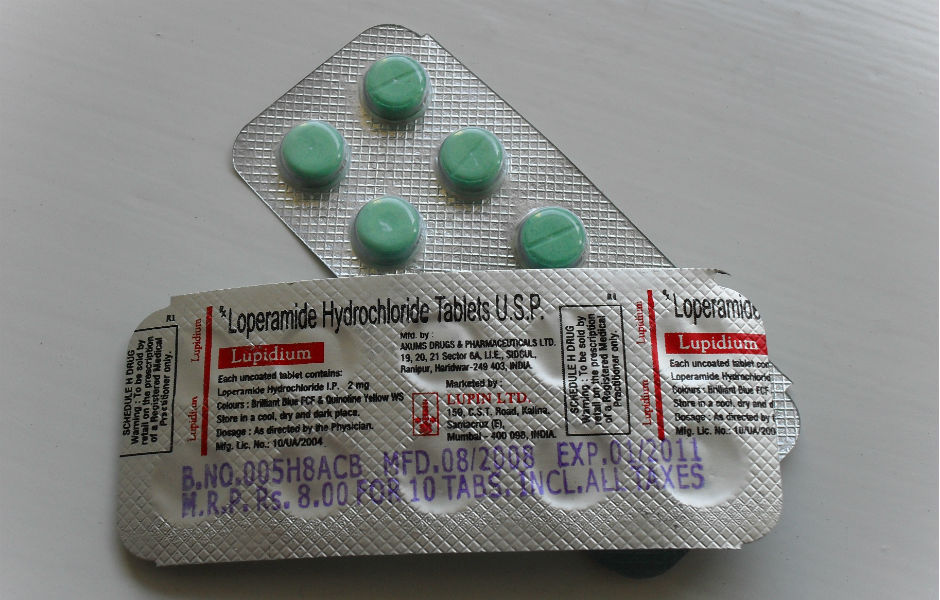The U.S. Food and Drug Administration (FDA) announced a warning about the use, or misuse of Imodium — the common over-the-counter (OTC) diarrhea medicine. Imodium is the brand name for the prescription medication loperamide.
Loperamide is a commonly used over-the-counter (OTC) and prescription medicine that helps control symptoms of diarrhea. It’s sold under the OTC brand name Imodium, as store brands, and in generic form.
The FDA warns that taking higher than recommended doses of loperamide, or Imodium — intentionally or unintentionally — can result in serious heart problems, including abnormal heart rhythms.
In addition, misuse or abuse of loperamide, or Imodium can also lead to death.

Risks of Imodium
The majority of serious heart problems reported occurred in people who intentionally misused or abused the antidiarrheal by taking high doses “in attempts to self-treat opioid withdrawal symptoms or to achieve a feeling of euphoria.”
The risk of these serious heart problems are increased when high doses of loperamide are taken with several kinds of medicines that interact with loperamide.
In a June 7, FDA safety announcement, the agency provides a partial list of drugs that may cause adverse effects for people when mixed with Imodium or loperamide. The extent of the effects of each drug is unknown.
Examples of drugs that can potentially interact with Imodium or Loperamide
Generic Name Examples of Brand Name(s)
- cimetidine Tagamet HB
- clarithromycin Biaxin, Prevpac
- erythromycin E.E.S., Ery-Tab, Eryc, Eryped, PCE
- gemfibrozil Lopid
- itraconazole Onmel,Sporanox
- ketoconazole Available by generic only
- quinidine Nuedexta
- quinine Qualaquin
- ranitidine Zantac
- ritonavir Kaletra, Norvir, Technivie, Viekira Pak
(Quinine and its isomer quinidine are also present in Tonic Water.)
From 1976 through 2015, the FDA received 48 case reports of serious heart problems associated with use of the loperamide, or Imodium. This reported number only includes cases that were submitted to the FDA. There are likely additional cases that were not reported.
Thirty-one of the cases resulted in hospitalizations. Most unfortunately, 10 patients died. The serious heart problems occurred mostly in patients who were taking doses that were much higher than recommended.
However, in other cases, patients were taking the recommended dose of loperamide, but they were also taking interacting medicines, causing an increase in loperamide levels.
Recommendations
When taking loperamide or Imodium, people are advised to follow the dosing recommendations on the label. Taking higher than recommended doses, either intentionally or unintentionally, may lead to abnormal heart rhythms and serious cardiac events — leading to death.
Additionally, drug interactions with commonly used medicines also increase the risk of serious cardiac adverse events.
Stop taking loperamide and contact your health care professional if your diarrhea lasts more than two days. Seek medical attention immediately by calling 911 if you or someone taking loperamide experiences any of the following:
- Fainting
- Rapid heartbeat or irregular heart rhythm
- Unresponsiveness, meaning that you can’t wake the person up or the person doesn’t answer or react normally
Ask a pharmacist or your health care professional if you are not sure how much loperamide to take, how often to take it, or whether a medicine you are taking may interact with loperamide.
Patients, consumers, and health care professionals are urged to report side effects involving loperamide or other medicines to the FDA MedWatch program.
The FDA plans to continue evaluating this safety issue and determine if additional FDA actions are needed.
If you are not sure if a medicine you are taking interacts with loperamide, or Imodium, ask a pharmacist or your health care professional.
Featured image courtesy of Kristoferb via Wikimedia Commons | Cropped and Resized | CC-BY-SA-3.0.